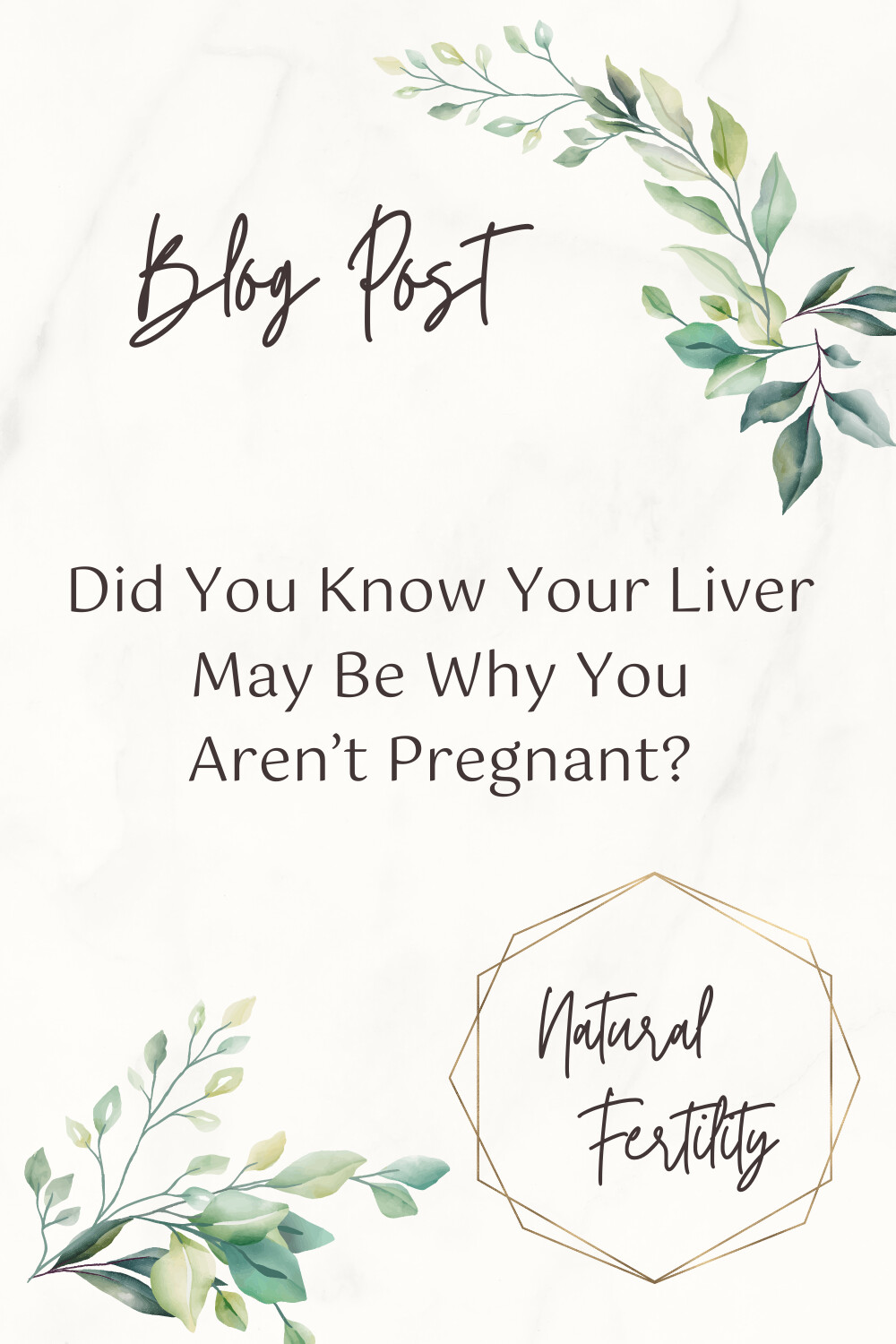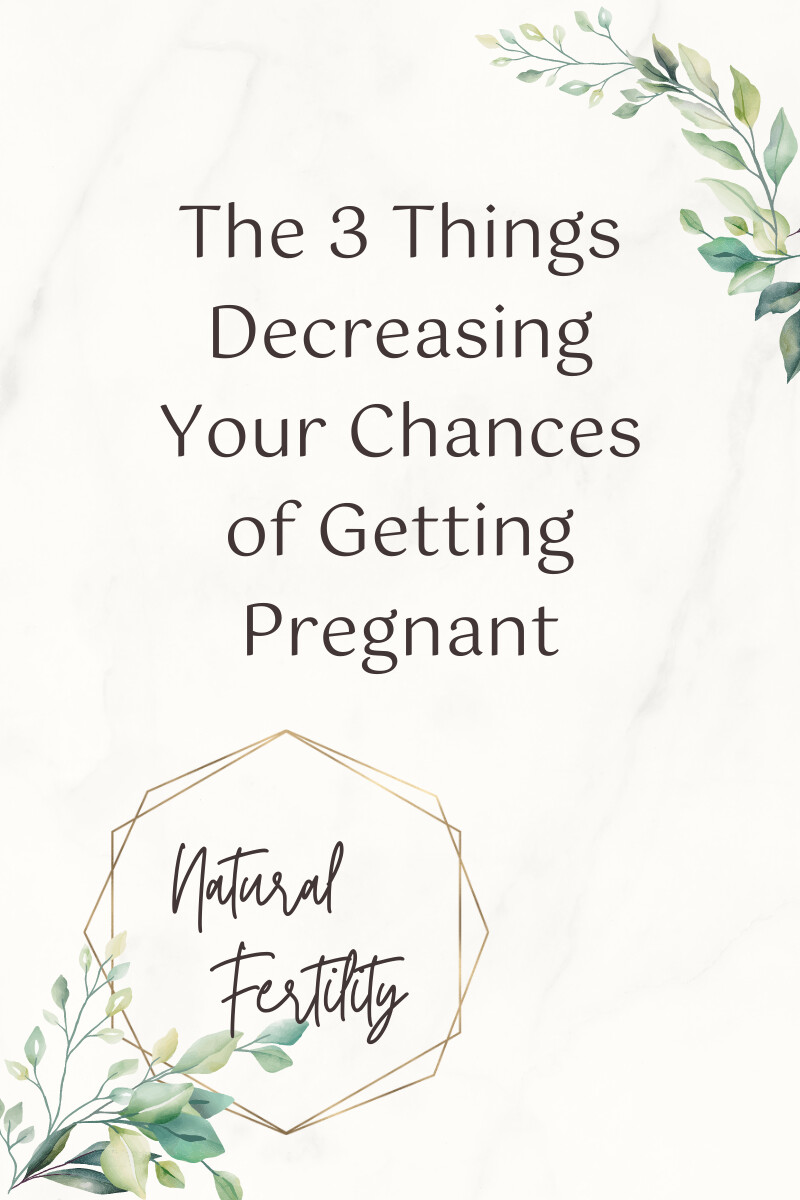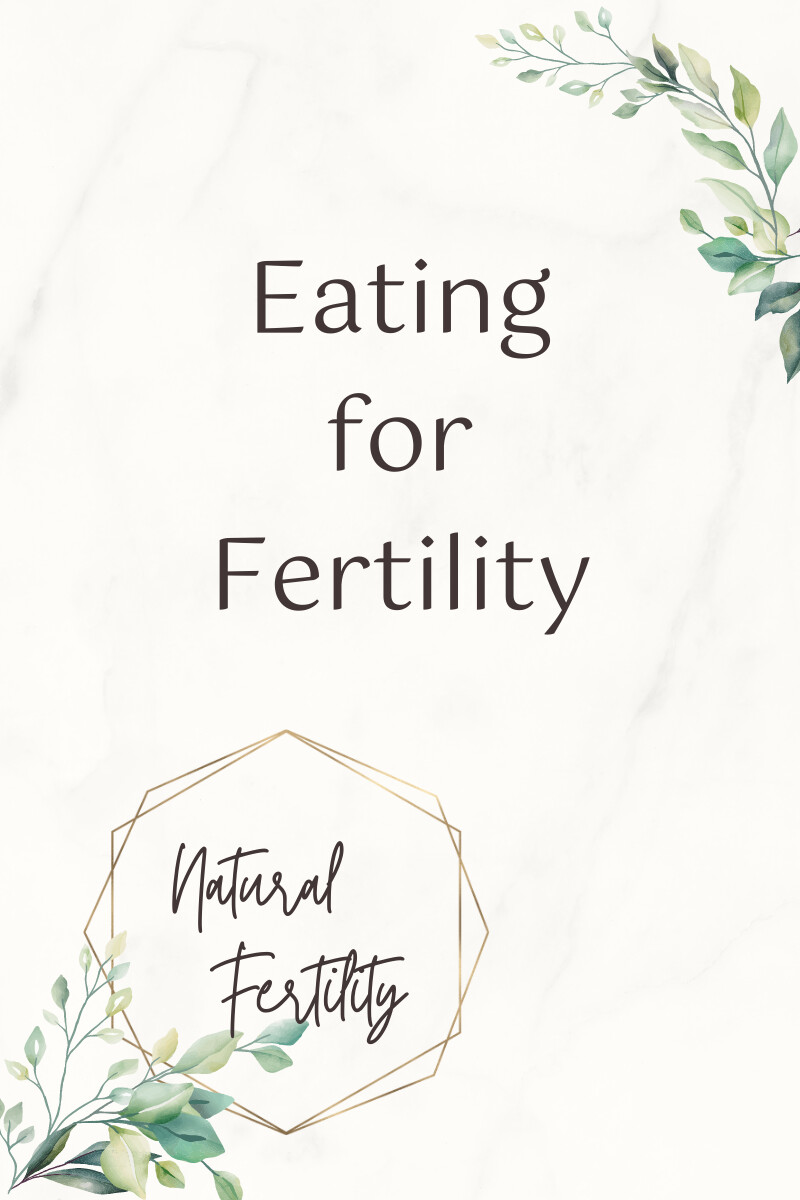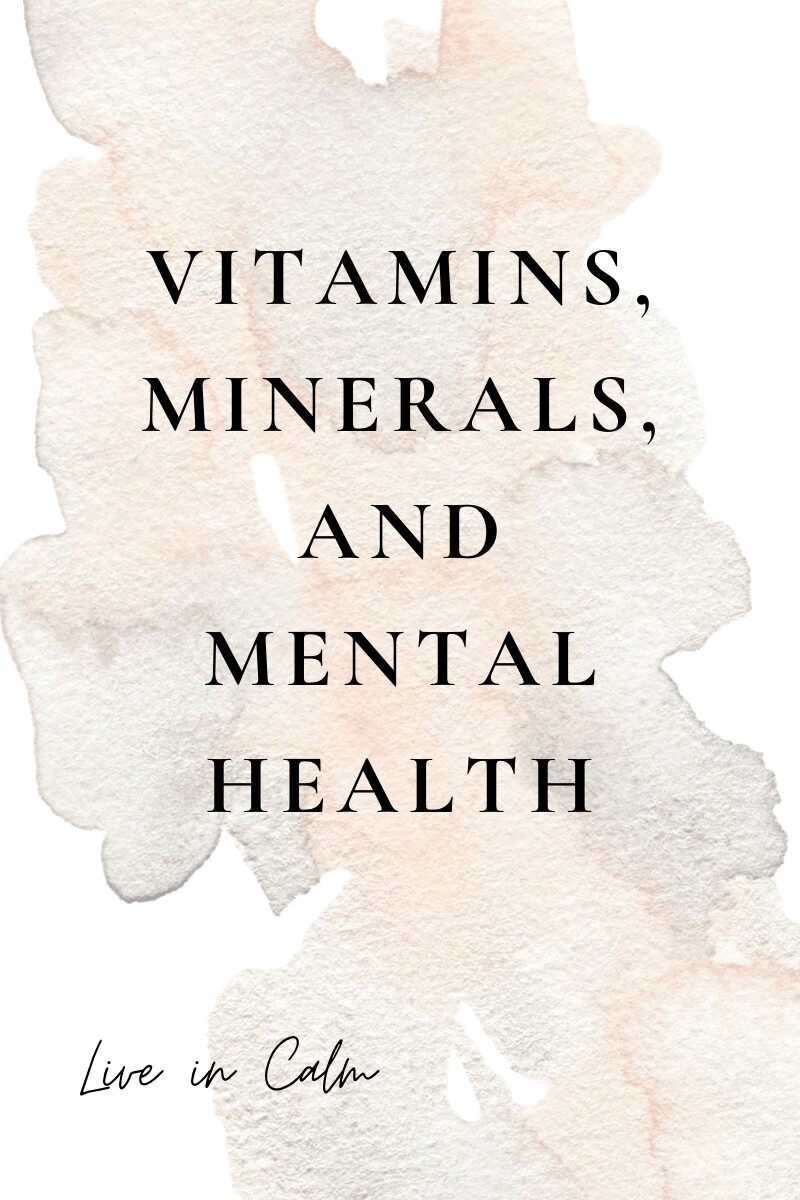This is something I just learned! I probably eventually could have pieced it together, but never heard anyone say it flat out. It really struck me especially because it was in relation to fertility.
We were talking about the liver and how you can take care of it. Some signs that your liver needs help is when you are having hormonal imbalances and a host of other things. When they mentioned that the liver plays a role in hormones, and of course they control our fertility, someone said that a friend of theirs had done a liver and colon cleanse and shortly thereafter got pregnant after not being pregnant for a long, long time.
When I heard that, it really did jump out at me and I knew I had to share! So, let’s just talk through why those are connected and how you can give your liver some love so that your fertility can also be impacted. Loving your liver and giving it what it needs is going to improve a host of things because it is proabably the hardest working organ in your body, maybe second to the heart, but without either one of them, you will soon be dead. I know you need all your organs, but this one, does a lot!
The liver is the biggest filter in your body and actually filters 1/4 of your blood every minute! It’s filtering out things like toxic chemicals that you come in contact with while out and about. Things in products that you may use, medication you may be taking, hormones that are dead and need to leave your body, and antibiotics that may have been added to animals you have eaten. I am not a vegetarian and am not saying anyone should be, but those are things that are in our modern day world, especially if you eat non organic meat like I do. Someday when my budget allows, I’ll upgrade to organic meat, but until then, I trust that the Lord will honor the choices I do make on the budget I have.
So let’s connect the liver directly to your fertility. Since it responsible for flushing dead hormones out of the body, it has to have an open pathway for them to leave. That pathway is the colon, and sometimes urine, but let’s focus on the colon. It has to be clean for things to leave and it traps a lot of gunk besides fecal matter. What if you’re not pooping as often as you should (2-3 times a day) or you struggle to poop?
If you’re constipated, there are things you can do to clean that out before cleansing the liver. Pooping is one of the ways the body gets rid of excess estrogen. Estrogen dominance has a negative impact on your body, especially hormones and fertility. When you can’t move the dead hormones out via your poop, your body is still receiving the signal that you have the hormones you need. Therefore, you aren’t making new and healthy ones that can actually do the function they are meant to do. To cleanse the colon, get healthy fiber in your diet. Fruits and veggies are a great source of fiber. You can also use a fiber supplement like this.
Once you get the colon clean, you can cleanse the liver. The best thing you can do is drink plenty of clean water to help it move everything through with ease. By “clean water” I mean filtered to remove the nasty stuff in tap water. I won’t go into great detail, but one thing commonly found in tap water is medication. You wouldn’t take someone else’s meds that aren’t intended for you on purpose, but drinking tap water can expose you to that. Investing in a good water filter is important. It’s the next improvement in my home that I plan to make when I am able. Also, look for foods that are good for your liver. I’m sure you can find some in a simple online search. Lemon is also supportive to the liver. I like to add a drop of Lemon Vitality™ oil from Young Living® to my water. I only consume oils for Young Living® because they are dietary grade. I would also warn you not to consume any other brand, especially from the store or amazon. I can’t vouch for their purity or safety. You can also squeeze a fresh, organic lemon in your water for similar benefits.
Now that you have your liver and colon clean, you are able to flush the dead hormones and you brain can receive the message that you need to create new, healthy hormones. When the dead ones are there, your body can detect them, but it cannot tell that they are dead. That’s where the challenges arise. So here’s t0 clean livers, colons, and healthy hormones that can encourage your fertility to be the best is can!
*Nothing in this blog is meant to be medical advice or an attempt to diagnose or treat any disease. I share it as educational content that you can take and empower your own wellness.
Your fertility has been under attack since you were born. I don’t know about you, but I am right on the verge of turning 30, and a lot of these things that are impacting us have been causing damage, pretty much from the time I was a young kid, or from the time I was born. Much of this stuff was introduced or studies about them started to come out in the 90’s or early 2,000’s. This information has been around for a while, it’s just not been put out there in front of the general public because the powers that be don’t want it put out there because they benefit from us not knowing. Let’s dive into those 3 things.
The first thing is chemicals. If you are familiar with any of my content, you know that one thing I am passionate and careful about in my own life is keeping chemcials out of what I use. Anything that has any kind of toxin in it is not crossing the threshold and coming into my home. These include phthalates, pesticides, heavy metals, BPA, triclosan, parabens, and the list goes on. That’s the short list that will get you started in your awareness. But studies have shown that these things can cause disruption in your endocrine system, which is everything related to your hormones, and you know that tour hormones are really important to this. Phthalates, specifically, can disrupt follicle growth and increase follicle death by increasing oxidative stress in your body. Oxidative stress to your cells is like rust to a car. Never good. Things that cause that can lead to infertility. Phthalates can also cause the reserves in your ovaries to be used up faster and cut off your reproductive years earlier than it should. In other words, menopause coming on sooner.
Some other things that people have discovered is that this is also effecting your hypothalamus, pituitary, ovaries, and uterus because your pituitary gland and hypothalamus control a lot of the release of your hormones. All of that is connected. You can’t pull them apart and separate them. Your body is one giant system. We kind of divide it up into the different systems, and while that is true, it’s all part of one giant masterpiece that God created and He didn’t mean for it it be picked apart into pieces. It does help to have those subcategories, but I think too often we forget that we are one large puzzle with pieces all effect each other.
Some other interesting things that I found in some studies is that Triclosan specifically can affect progesterone production and ovarian functions. Both of those are very important to fertility. Progesterone is the hormone that is key to us being able to get pregnant and being able to sustain a healthy pregnancy. This is basically the protector that is creating the safe environment for your baby when they are in utero, especially in the first trimester. I know multiple women who have used natural progesterone, and did it myself, to encourage our bodies to work they way they should and be able to get pregnant and also sustain a healthy pregnancy. I have a friend who was pregnant at the same time I was with my son. She lost that baby. Months later, she came to me asking questions about the natural progesterone I used and started using that. A month or two later, she was pregnant with her second baby and now she has another child as well! Triclosan not only impacts us when we are trying to conceive, but when babies are exposed to it in utero, it can have negative impacts on their fertility in the future. The domino effects of the chemicals we are using even into the next generation are astounding.
Triclosan has the potential of being carcinogenic, so it could cause cancer. Specifically it is connected to breast, ovarian, and prostate cancer. Obviously the first two would be in women and the last one in men. Men need healthy hormones too, especially for conception.
The second thing that affects your fertility is xenoestrogens. These can come from chemcials; you can look up which ones are classified as xenoestrogens. They can also come from things in medication, esepcially birth control. If you are on the pill form of birth control, that’s a xenoestrogen. It’s a fake form of a hormones that’s causing your cycle not to happen the way it should. It’s muting or turning things off in your body that are natural functions. It does damage. We’ve been taugh that this this the “responsible” or “convenient” thing to do; whatever word you want to put there. I took it too. I didn’t know better when my husband and I were about to get married and people said, “if you don’t want to have a baby on your honeymoon, take this now so your body has adjusted to it.” I just did it. I really paid the piper in a lot of health issues.
If you don’t already know my story, you can read that here. But long story short, it did a lot of damage that took me a long time to figure out and heal. I would never try to make that decision for you, but I don’t encourage anyone to use birth control of any form. I have not found one that doesn’t contain a damaging chemical or synthetic hormone. So if you were wondering my opinion on that, there is it. The reason these are so damaging is that they can go into the body and mimic the function of estrogen and we end up with estrogen dominance because our body can’t get rid of it. Estrogen dominance is mostly responsible for things like endometriosis, PCOS, and other issues like that that play a role in fertility struggles as well.
The last thing is sugar. I have an entire blog post on this, but some of the thing it does in the endocrine system is that it can create a chemical dependence on sugar itself. If you don’t know, it’s just addictive as cocaine. It lights up the exact same centers of the brain as that drug. This is why cutting out sugar can be especially difficult for some people. It does cause an imbalance in the organs that control our hormones. This will also effect all of our hormones in turn because when one is off kilter, the rest will be as well. The reproductive system for men may respond to sugar by presenting with erectile dysfunction. Sugar also shuts down testosterone and elevates estrogen. Women have testosterone in much smaller amounts than men, but we don’t want it to elevate the estrogen. We’ve already touched on what that can do. Sugar does not do your fertility any favors.
I don’t want to leave you wondering “what can I do?” I have a 90 day fertility workbook with 11 different changes you can make in your lifestyle. You choose 3 of them and focus on them for 30 days each. I make myself available to you in monthly one on one coaching calls or simply through email as you implement these changes. This is completely free for you to grab so you are never lost or confused like I was in my fertility journey. I want to take you from point A of trying to conceive to point B of being pregnant as quickly as possible. Grab your copy of the workbook now by clicking here.
Has an OBGYN or even a midwife ever address fertility/pregnancy supporting foods with you? I had a midwife because my desire was to approach my fertility and pregnancy in a more natural way and still the only time diet was mentioned was when she wanted me to chart what I ate for a week. The only feedback I received when I returned it to her was that I needed to add “more colors” into my meals. I knew she meant vegetables and the like, but I still felt lost. Can you relate?
Ingredients that Harm Fertility
Ingredients to avoid would have been the first thing I wanted to know when I was in your shoes. I don’t meant the common list of “fish, mayonnaise, potato or egg salad, etc.” that pregnant women are given with little explanation as to why they shouldn’t eat them. I mean I wanted to know the things that could hinder my fertility and why. Here’s the list I wish I had when I was TTC.
- Trans Fatty Acids: raises bad cholesterol and lowers the good; found in margarine, baked and fried foods. Find them in foods by looking for “partially hydrogenated oils.”
- Seed Oils: these could fall under the umbrella of trans fatty acids, but show up differently on labels. These include canola, vegetable, sunflower, corn, cottonseed, grape seed, rice bran, safflower, soybean oils. Organic versions do not make them better. Go for things like coconut, avocado, and extra virgin olive oil instead. Organic options of these are best.
- Refined Carbs: sugary foods & drink and processed grains including pasta, breads, and oats
- Caffeine: more than 500mg a day may add months to TTC calendar
- Alcohol: 14+ drinks per week can add time to TTC calendar
- Food Dyes: these are manufactured using petroleum which is waste from the gas/oil industry
Foods & Nutrients to Promote Fertility
If I had been handed that list, my next question would have been, “so what can I eat?” Are you asking that right now too? Don’t worry, I’ve got ya covered, friend. Get ready to take some notes or screenshot this.
- Complex Carbohydrates: these are nutrient dense and help to balance blood sugar while making you feel full; sources include fruits, vegetables, brown rice, beans, seeds, and tapioca
- Fiber: this is important to maintain proper bowel movement which in turn removes extra estrogen from the body. Complex carbs are a great source of fiber. Two birds, one stone!
- Monounsaturated Fats: unlike the trans fats, these fats lower bad cholesterol and increase good. These can be found in the healthy oil options listed above.
- Folate: doctors will recommend folic acid, but this is a synthetic version of folate; your body doesn’t know what to do with fake nutrients so basically you’re paying for expensive pee. Find a supplement that has folate and you’ll be on a better track and not wasting your money. You can find it in fresh fruits, eggs, dark leafy greens, liver, and peanuts. Avoid the flavored nuts because they’ll probably have some of the ingredients you’re trying to avoid. Food companies are sneaky.
- Vitamin B12: some studies have shown that this, along with folate, may help regulate your cycle which makes conception much easier.*1 Add some fish, eggs, liver, poultry, or read meat to your menu.
- Vitamin A: studies in cows have found supplementation of vitamin A to be beneficial and increase the odds of conception when artificial insemination is used.*2 Get it from leafy green vegetables, eggs, beef liver, and fish oils. Seeing a pattern here?
- Vitamin D: studies are definite on this, but are saying it may be beneficial to fertility; good food sources would be tuna, salmon, egg yolks, and beef liver.
- Vitamins C & E: These were studied in women with endometriosis and found to reduce the inflammation that was part of the disease. Inflammation is never helpful to fertility so whether you have endo or not, these can be beneficial. Get them by eating citrus fruits, strawberries, tomatoes, red bell peppers, almonds, and peanuts.
This list is not exhaustive, but will give you a good place to start. As always, I encourage you to do some research of your own. You will always be the best advocate for your health. Want help getting started with healthier food choices? Schedule a free 30 minute consultation with me! I’ll help you find budget friendly meals and supplements that integrate these nutrients. Let’s talk soon. 💜
Footnotes:
*1 Thornburgh S, Gaskins AJ. B vitamins, polycystic ovary syndrome, and fertility. Curr Opin Endocrinol Diabetes Obes. 2022 Dec 1;29(6):554-559. doi: 10.1097/MED.0000000000000773. Epub 2022 Sep 27. PMID: 36165609.
*2 Ikeda S, Kitagawa M, Imai H, Yamada M. The roles of vitamin A for cytoplasmic maturation of bovine oocytes. J Reprod Dev. 2005 Feb;51(1):23-35. doi: 10.1262/jrd.51.23. PMID: 15750294.
Negative Effects of Sugar
We all know that sugar can negatively affect our blood sugar, but it negatively affects every system of our body. Here’s a snapshot.
- Respiratory System
- Sugar causes inflammation of the lungs
- It directly effects or even causes asthma
- Cardiovascular System
- Higher blood pressure
- Build up in veins
- Digestive System
- Pain and gas
- Cramping
- Triggers Irritable Bowel Syndrome
- 20% more likely to develope Chron’s Disease
- Liver
- It is the only organ that can metabolize sugar
- Too much sugar will cause fatty liver that will look like the liver of an alcoholic
- Endocrine System
- Sugar will create a chemical dependence on it
- Imbalances in one or more endocrine organs which affect all the others
- Reproductive System
- Erectile dysfunction
- Lipids from the sugar can shut down testosterone and elevate estrogen
- Urinary System
- Irritates the bladder
- Causes the kidneys to store bacteria which can lead to stones
- Immune System
- Researchers found in 1973 that it sugar suppresses this system
- Skin
- Acne
- Eczema
- Rosacea
- Negates the effects of collagen
- Nervous System
- Releases serotonin (this is a good substance) but relying on sugar to get a hit ends up turning into self medicating
- Relying on sugar to release dopamine leads to reduced dopamine release each time which leads to us consuming more sugar to release the desired level of dopamine
*Information from a lecture by N. Perez
What Science Has Found
PubMed.gov is a great place to find peer reviewed scientific studies. Here is what I found on their site.
“…A growing body of evidence points to a link between diet and female fertility. In fact, data show that a diet high in trans fats, refined carbohydrates, and added sugars can negatively affect fertility. Conversely, a diet based on the Mediterranean dietary patterns, i.e., rich in dietary fiber, omega-3 (ɷ-3) fatty acids, plant-based protein, and vitamins and minerals, has a positive impact on female fertility. An unhealthy diet can disrupt microbiota composition, and it is worth investigating whether the composition of the gut microbiota correlates with the frequency of infertility…” *1
“…Body weight and nutritional status are closely related to reproductive function. However, few studies have investigated the direct effects of dietary modification on fertility treatment outcomes. Research on nutrition in pregnancy suggests that reduction in glycemic load and micronutrient supplementation may improve pregnancy outcomes…” *2
“…Generally, the results indicated that healthy diets rich in some nutrients such as omega-3 fatty acids, some antioxidants (vitamin E, vitamin C, β-carotene, selenium, zinc, cryptoxanthin and lycopene), other vitamins (vitamin D and folate) and low in saturated fatty acids and trans-fatty acids were inversely associated with low semen quality parameters. Fish, shellfish and seafood, poultry, cereals, vegetables and fruits, low-fat dairy and skimmed milk were positively associated with several sperm quality parameters. However, diets rich in processed meat, soy foods, potatoes, full-fat dairy and total dairy products, cheese, coffee, alcohol, sugar-sweetened beverages and sweets have been detrimentally associated with the quality of semen in some studies…” *3
Its Code Names
Unfortunately for us, companies are really good at hiding sugar in their products. We have to become super sleuths and recognize the code names for what they really are. Here is a list to get you started.
- Agave nectar & syrup
- Barbados sugar
- Barley malt
- Barley malt syrup
- Beet sugar
- Birch syrup
- Blackstrap molasses
- Brown rice syrup
- Brown sugar
- Cane juice
- Cane juice crystals
- Cane sugar
- Caramel
- Carob syrup
- Castor sugar
- Coconut palm sugar
- Coconut sugar
- Confectioner’s sugar
- Corn sugar
- Corn sweetener
- Corn syrup
- Corn syrup solids
- Crystalline fructose
- Date sugar
- Dehydrated cane juice
- Demerara sugar
- Dextrin
- Dextrose
- Diastatic malt
- Evaporated cane juice
- Free-flowing brown sugar
- Fructose
- Fruit juice
- Fruit juice concentrate
- Galactose
- Glucose
- Glucose solids
- Golden sugar
- Golden sugar
- Grape sugar
- High fructose corn syrup
- Honey
- Icing sugar
- Invert sugar
- Jaggery
- Lactose
- Levulose
- Malt syrup
- Maltodextrine
- Maltol
- Maltose
- Mannose
- Maple Syrup
- Molasses
- Muscovado
- Oat syrup
- Palm sugar
- Panela
- Panocha
- Powdered sugar
- Rapadura
- Raw sugar
- Refiner’s syrup
- Rice syrup
- Rice malt syrup
- Saccharose
- Sorghum (sweet) syrup & molasses
- Sucrose
- Syrup
- Tagatose
- Tapioca syrup
- Treacle
- Trehalose
- Turbinado sugar
- Vegetable juice
- Vegetable juice concentrate
- Yellow sugar
- Yacon syrup
List from That Sugar Movement
Healthy Swaps
Just because sugar is out doesn’t mean that we can’t enjoy anything sweet. Trust me, I know that no woman can live that way. Here are some blood sugar safe options that don’t tear down the body.
- Stevia (make sure that sneaky brands aren’t adding maltodextrin)
- Xylitol
My favorite brand is Pyure; it’s a stevia based sweetener. It comes in granulated and powdered form for all your baking/cooking needs.
One of my best friends also recommends Trim Healthy Momma’s stevia.
————————
Footnotes
*1 Skoracka K, Ratajczak AE, Rychter AM, Dobrowolska A, Krela-Kaźmierczak I. Female Fertility and the Nutritional Approach: The Most Essential Aspects. Adv Nutr. 2021 Dec 1;12(6):2372-2386. doi: 10.1093/advances/nmab068. PMID: 34139003; PMCID: PMC8634384.
*2 Lim SS, Noakes M, Norman RJ. Dietary effects on fertility treatment and pregnancy outcomes. Curr Opin Endocrinol Diabetes Obes. 2007 Dec;14(6):465-9. doi: 10.1097/MED.0b013e3282f1cfc6. PMID: 17982353.
*3 Salas-Huetos A, Bulló M, Salas-Salvadó J. Dietary patterns, foods and nutrients in male fertility parameters and fecundability: a systematic review of observational studies. Hum Reprod Update. 2017 Jul 1;23(4):371-389. doi: 10.1093/humupd/dmx006. PMID: 28333357.
 We Are 1 in 8
We Are 1 in 8Statistics say that 1 in 8 couples struggle to get pregnant or maintain a pregnancy. My name is Kristen and my husband is Jared; we are 1 in 8.
After trying to conceive for over a year, Jared and I felt it was time for us to seek medical advice. I had already experienced many health issues during that year, so we made an appointment for me first and Jared came with me. I was afraid to hear whatever the doctor may say and didn’t want to make any decisions without him.
The doctor asked all the typical questions and we told her about my history with migraines, the highly likelihood that I had endometriosis and that we had been trying for over a year. She quickly listed off all sorts of tests and a couple potential surgeries I might need. She even suggested a test for Jared.
She then told me to start taking any prenatal supplement that contained folic acid. When she mentioned supplements, it came up that I use natural supplements and products. What came out of her mouth next shocked me. I can’t quote her word for word as it’s been years since this appointment, but she all but told me that I could kill myself by using that sort of stuff. It wasn’t a kind and concerned warning. It felt like she was looking down her nose at me or even scolding me for caring about my own health and having a preference. We finished the appointment, walked out, and never went back. I was even more determined to find a natural option to try before resorting to any type of procedure or surgery.
Fertility Challenges
The National Institute of Health lists these as reasons that a couple may struggle to conceive.
- Females
- Problems with the cycle
- Structural problems with the reproductive system
- Infections
- Failure to mature egg
- Endometriosis
- Polycystic Ovarian System
- Primary Ovary Insufficiency
- Uterine Fibroids
- Autoimmune Disorders
- Males
- Problems with Sperm Formation
- Problems with Sperm Transportation
What They Don’t Talk About
Have you ever done an internet search on the ingredients in your personal care, makeup, perfume, laundry soap, dish soap, and cleaners in your home? You’re probably wondering why I’m asking. Did you know that the ingredients in these products can affect your fertility? Yep, they do. The Toxic Substance Control Act of 1976 grandfathered in thousands of chemicals whose long term affects on the body were never tested! This is what’s hiding in mainstream products.
Some of the most problematic ingredients include:
- SLS & SLES
- Parabens
- Phthalates
- Fragrance
- Synthetic Colors
This is what the doctors don’t ask or tell you about. Removing toxins and chemicals gives your body the chance to recalibrate and function properly.
My Bigger Problem
I had been experiencing debilitating migraines for months before this appointment. It took many doctor visits for me to find out that my birth control was the culprit. Jared and I had agreed that we wanted to take at least a year after getting married before trying to have children. Birth control was the “safe” and recommended option. Little did I know that I know that the reason it had caused my migraines to spike was because it had messed up the natural balance of my hormones. That was going to take some work. The good new was, I had options!
Foods Are Important Too
Shortly after Jared and I got married, we starting following the Trim Healthy Momma lifestyle for our meals and snacks. The biggest change for us was cutting sugar out of our meals. It wasn’t my goal at the time, but it was a step in the right direction for my fertility. Here are some other food tips for fertility.
- May Promote
- Antioxidants: specifically folate & zinc which promote the health of sperm and eggs
- Fiber: helps to remove excess estrogen from the body
- Vitamins: folate which is the natural version of folic acid; this promotes fertility
- Iron
- May Harm
- Trans Fat: messes with the ovaries; you’ll find it in vegetable oil, margarine, fried foods, and baked goods
- Refined Carbs like sugary foods & drink and processed grains
- Caffeine: more than 500mg a day may add months to TTC calendar
- Alcohol: 14+ drinks per week can add time to TTC calendar
 My Miracle
My MiracleAre you wondering what I chose to do that worked? This is my favorite thing to share!
After that unforgettable doctor’s appointment, I reached out to a friend who had lots of experience in the natural health world. I figured if anyone could tell me where to start doing some research, it would be her. She pointed me in a direction, and I took it from there. I cannot share exactly what I did on a public forum, but I love personal conversations. Within one month of consistently applying what I had learned, I had a positive pregnancy test! Please keep in mind that this was on top of all the other lifestyle changes I had made.












